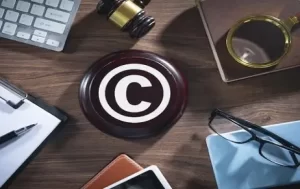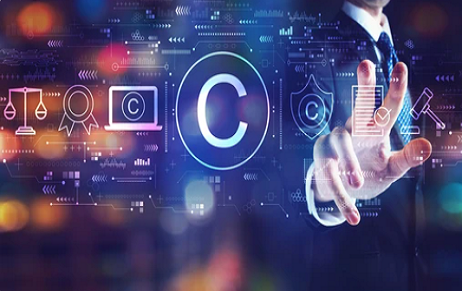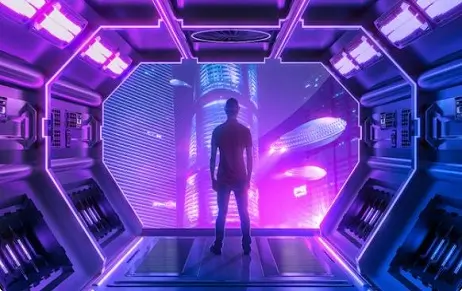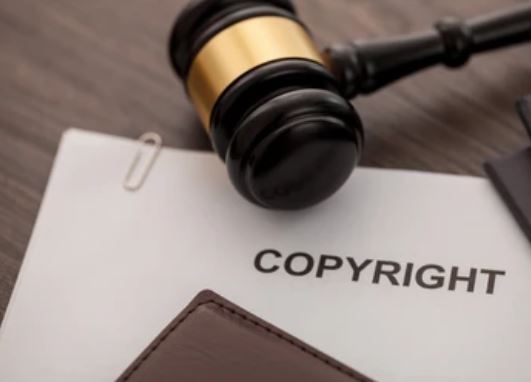Introduction A catchphrase is defined as a term, phrase or sentence repeatedly used by an…
Copyright Law And Webinars : Overcoming The Complexity
Introduction
Webinars have developed into a convenient and efficient way to share knowledge across a variety of professions during and after COVID 19 pandemic, enabling online exchanges between students and other academic enthusiasts. The author of this article examines the situation of copyright infringement with regard to webinar recording, taking this as the new norm.
[Image Source: Freepic]

Copyright is the legal right to represent an idea in a tangible way, or in the form of “work,” as that term is used in Section 2(y) of the Copyright Act of 1957 (the “Act”). Section 2(n) of the Act, defines a lecture as any address, speech, or sermon. . On the contrary, the act’s definition of literary work is inclusive and broad, encompassing a variety of expressions. However, according to Article 2(1) of the Berne Convention, lectures are regarded as literary production . Since India has ratified the Berne Convention, it is reasonably assumed that literary activity under the Act will also include lectures. Furthermore, the author has the right to be the first owner of the copyright under Section 17 of the Act .
The authors of public addresses or speeches now possess the copyright under Section 17 Clause (cc). The fact that a speech or address falls inside the umbrella of works covered by copyright implies that the speaker has an inherent right to copyright in the “spoken” form. Additionally, speech that is represented in a form that may be perceived is copyrighted. Originality, not the representation of lecture in a tangible form, is the key prerequisite for copyright protection.
Originality vis-a-vis Webinar Lectures and Recordings
The requirement to retrieve such a lecture necessitates its preservation even though a lecture’s copyright ability may not be dependent on physical preservation. Typically, the lectures from educational webinars are videotaped for later use. Section 13 of the Act specifies that literary, dramatic, artistic, and musical works must be “original,” however films and sound recordings are excluded from this “originality criterion.” Despite the fact that originality is not a requirement for copyright, such works would not be regarded copyrightable if they infringe on the copyright of any other work from which they have been delivered. As previously stated, anyone who delivers a speech “in public” can claim copyright ownership of it. This ownership would only come into play if the speaker ensured that the speech or lecture, he gave was an “original” literary work. India has shifted from the UK’s “sweat of the brow” philosophy to the US “modicum of creativity” doctrine. The courts elaborated on the idea of a minimal level of innovation when they created the “merger doctrine.” Minor changes to previously published work did not particularly bother the courts as much as distinguishable components did. Therefore, a lecture delivered in a literary work’s style should not be merely an improvisation of a piece that already exists in another form.
The webinar speaker possesses the exclusive authority to record the lecture. Infringement would occur if the recording was created by someone other than the speaker. Speakers are asked to present a lecture as part of a webinar by a wide range of organizations or people. As per Section 2(d) (v), the person organizing this lecture would be the author of the recording of such a lecture. Even if he is engaged by another person, the speaker owns the lecture under Section 17 (cc) of the Act (who has made all the arrangements for the lecture). So, in order to prevent copyright infringement, the webinar speaker’s permission is needed before the recording may be created. Conflict of interest would occur if a speaker was not given the right to forbid the producer from recording his speech. But if the speaker’s exclusive right to record himself is granted to the producer, the producer’s right to release the tape to the public would conflict with the speaker’s right to record exclusively.
Joint Authorship in Webinars
The Copyright, Designs and Patents Act of 1988 in the UK and the Indian Act include identical definitions of joint authorship in sections 10(1) and 2(z), respectively. Two or more authors must participate in order to claim joint authorship, and each author’s contribution must be equal. Two or more authors must participate in order to claim joint authorship, and each author’s contribution must be equal. The issue of shared authorship arises when multiple speakers take part in a single webcast. Here, the UK Court’s 11-step test may be applied. The court found that the requirement of a subjective purpose to produce a work of shared authorship is lowered if one can demonstrate that the final product is a result of cooperation, authorship, contribution, and non-distinctness of contribution.
The uniqueness of each speaker’s contribution to a lecture on the same subject affects whether the work is regarded as a “work of joint authorship” or not. Additionally, the presenters must first give their permission for a live webinar to be recorded. It has been noted that each joint owner must consent before granting a license to a third party. India’s position on this issue is difficult because the courts have not yet established the parameters of collaboration in terms of shared authorship.
Conclusion
The problem of copyright protection in webinar recordings is complex. The majority of the time, a contract that expressly mentions the terms of copyright is not signed by the organizers or speakers. Other unofficial groups also host these webinars, therefore using a well-written contract is essential. A webinar’s ability to have several presenters is unexplored area. The Act somewhat explains the laws controlling digital space and copyright matters, although future developments in this area could provide complication.
Author: Shirish Parashar is a 4th year law student at National University of Study and Research in Law, Ranchi., in case of any queries please contact/write back to us via email [email protected] or at Khurana & Khurana, Advocates and IP Attorney.



